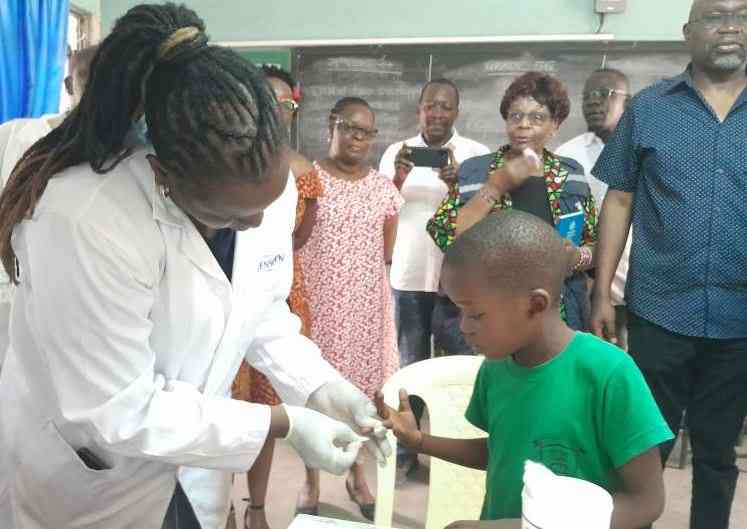Kezia Kitonga, a lab technologist at Jomvu Sub-county hospital takes a child through vaccination NTD World Day. (Jayne Rose Gacheri, The Standard)
×
The Standard e-Paper
Kenya’s Boldest Voice

Jerusha Atieno is a mother of three - two girls and a boy, aged between four and 10 years. She says one thing she dreads (in the past and now), is that time when she has to take her children for vaccination, something she too has a phobia for.
She says it does not matter how the vaccines are administered (orally, intranasal, subcutaneous, and intramuscular), "there is always something uncomfortable about the process, whatever the age of children."